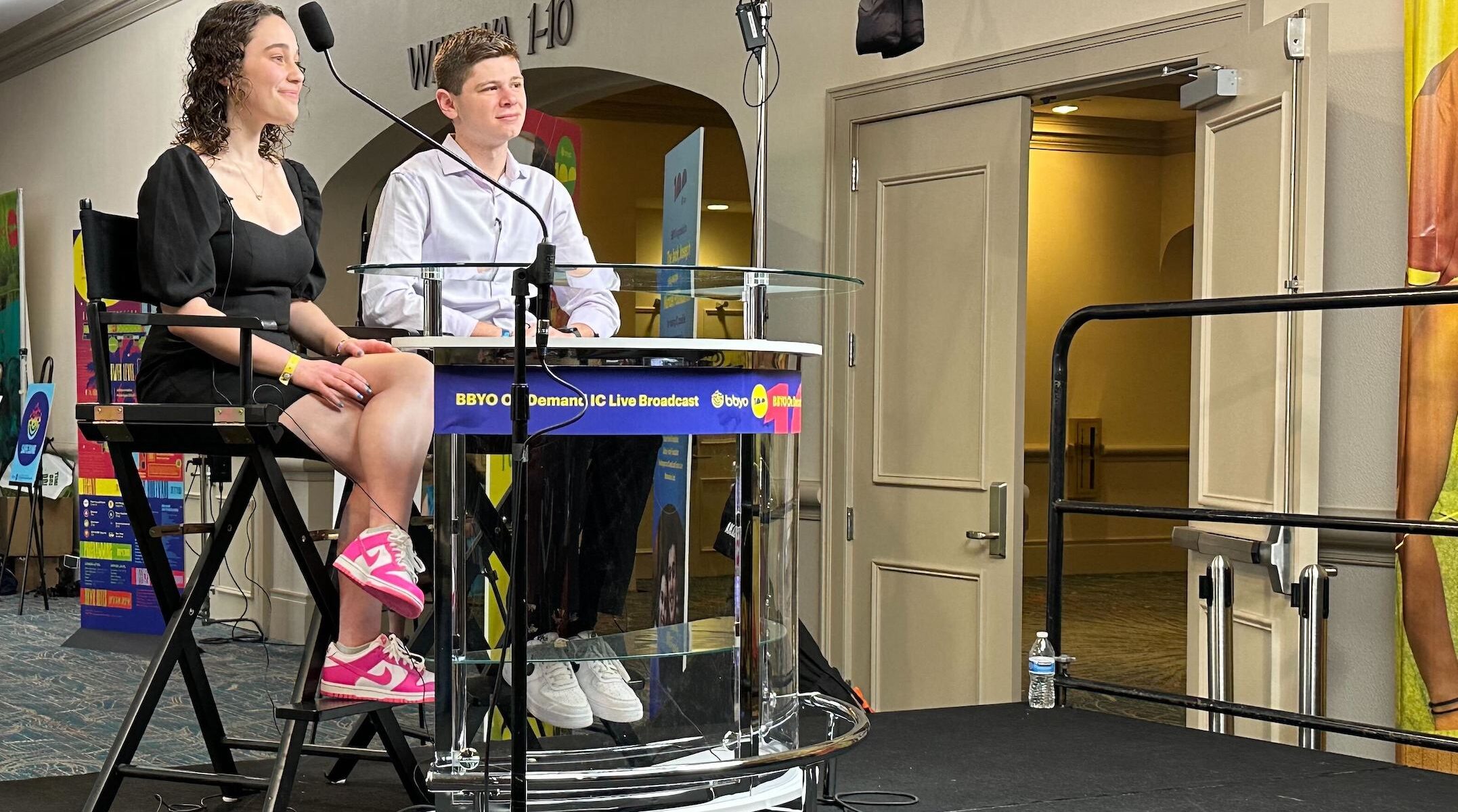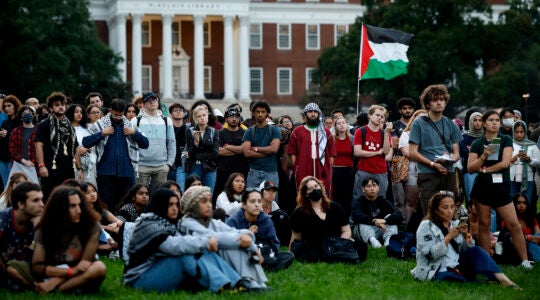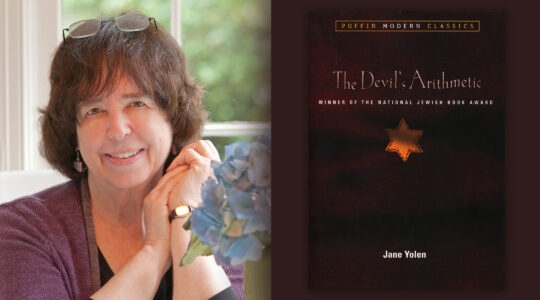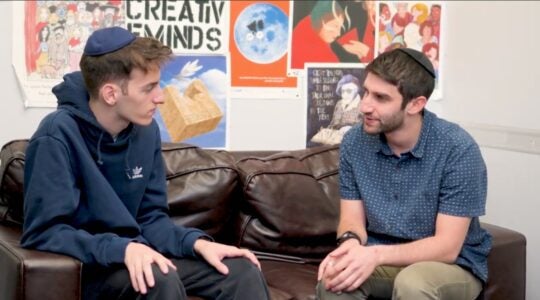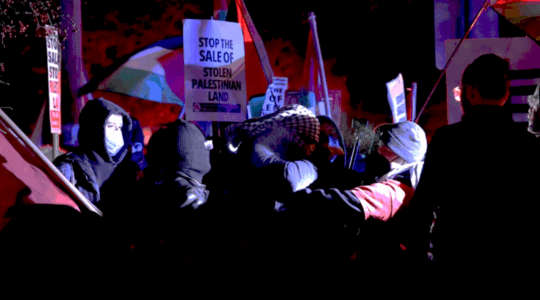ORLANDO (JTA) — Ethan Smith ranks fifth in his New Jersey high school class, scored high on the SAT and aced a full slate of five Advanced Placement tests last year. On Oct. 1, he submitted his application to a nearby Ivy League school, the University of Pennsylvania.
Six days later, Hamas attacked Israel, launching a war that has been accompanied by a reported spike in antisemitism in the United States — including on college campuses. About two months after that, Penn President Liz Magill told Congress that calling for the genocide of Jews wouldn’t necessarily violate the rules at her school.
Magill later resigned, but for Smith, the damage was done. He withdrew his Penn application and now plans to attend his home state school of Rutgers University.
“I just felt personally more comfortable there being fully who I am,” Smith said of Rutgers, which has a large Jewish population. He worried that Penn would be a place where he would be “constantly looking over my shoulder, worrying what somebody was going to do once I walked into Hillel.”
Smith’s decision is emblematic of a feeling shared by many teens active in the BBYO Jewish youth group, which met for its annual convention in Orlando this weekend: As they look at colleges, along with thinking about academics, location and the social scene, many have found themselves weighing a new factor: antisemitism.
A new survey of nearly 2,000 BBYO participants across North America, taken in recent weeks, found that 64% said antisemitism on campus was an important factor in their decision regarding where to attend college. More than 60% said they had experienced antisemitism in person.
“It made me not apply to some colleges,” Bianca De Almeida, a senior from Miami, told JTA regarding the December congressional hearing, where the presidents of Harvard University and the Massachusetts Institute of Technology also declined to say outright whether campus policy prohibited calls for the genocide of Jews.
“A lot of people didn’t apply to those schools,” De Almeida said. “It became a safety concern.”
The teens’ rethinking comes amid a broad reckoning by American Jews in the wake of Oct. 7 and the ensuing war. Widespread, harsh criticism of Israel, a spike in reported antisemitic incidents and what some experienced as inadequate concern about Jewish trauma have caused many U.S. Jews to question their inclusion in institutions and milieus where they previously felt secure.
Colleges have been a particular source of angst, with advocates filing frequent federal complaints alleging antisemitism on campuses, Congress holding a series of hearings on campus antisemitism and parents banding together to share worrying reports about incidents at their children’s schools. Some Jewish schools have threatened not to send their graduates to schools that don’t commit to keeping students safe.
There’s evidence that a large number of students are choosing not to apply to Harvard: The university reported a 17% dip in early decision applications this year. Though the early decision deadline was Nov. 1, a month before the explosive congressional hearing, Harvard faced scrutiny immediately after the conflict began, when a coalition of student groups circulated a letter blaming Israel for Hamas’ Oct. 7 attack.
De Almeida said she has gotten into Penn State but is mostly considering colleges in Florida, including the University of Florida, which is the only university in the country with more Jews than Rutgers. She said UF’s large Jewish community and its strong Hillel are appealing to her, though she acknowledged that it isn’t immune to bigotry: The campus Chabad was tagged with antisemitic graffiti in November..
Gabriel Golubitsky, a senior from Cleveland, said that the rise in antisemitism has only strengthened his desire to be Jewishly active in college and advocate for Israel, where he plans to spend a gap year with Young Judaea after graduation.
“If anything, I wanted to go to schools with more antisemitism, so I could fight it,” Golubitsky told JTA. He said he is mostly considering state schools in Ohio.
Golubitsky, who traveled to Washington, D.C. for the massive pro-Israel rally in November, said, “Kids know me as the pro-Israel kid because I post a lot about it.” He said many teens don’t understand both sides of the Israeli-Palestinian conflict, something he blamed on the education system.
Antisemitism on college campuses also took center stage at BBYO’s opening plenary session on Thursday. Israeli influencer, actress and producer Noa Tishby warned the teens that anti-Israel activists are “going to tell you they don’t hate Jews, they just hate Israel. Or even better, they hate Zionists.”

Noa Tishby speaks at the BBYO convention in Orlando, Florida, Feb. 15, 2024. (Courtesy BBYO)
Golubitsky’s friend Emir, a Boca Raton native who declined to share his last name, said he hopes to attend the University of Miami, partly because he wants to go to school locally.
“The school not having a big antisemitism problem and having a big Jewish community made me want to stay in Florida,” Emir told JTA. He said his high school has a large Jewish population and is home to a lot of pro-Israel advocacy — something he described as comforting. After people started “realizing what’s really happening,” he said, “they’re standing with Israel, or standing with their Jewish friends.”
That kind of support is what Smith is hoping to find at Rutgers next fall. He knows that by withdrawing his Penn application, he’s forgoing a shot at one of the country’s most elite schools. But when he looks at the state of college campuses today, he feels good about his choice.
“I was literally pulling away my chance to go to an Ivy,” Smith said. “They’re very different, but it was a matter of where I could be more comfortable.”
JTA has documented Jewish history in real-time for over a century. Keep our journalism strong by joining us in supporting independent, award-winning reporting.
